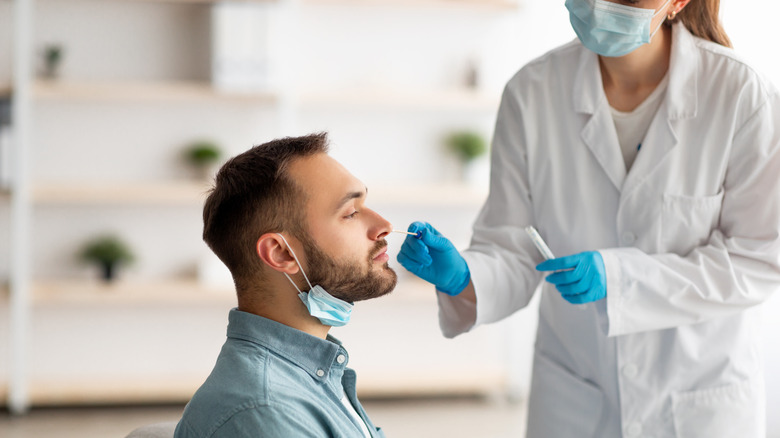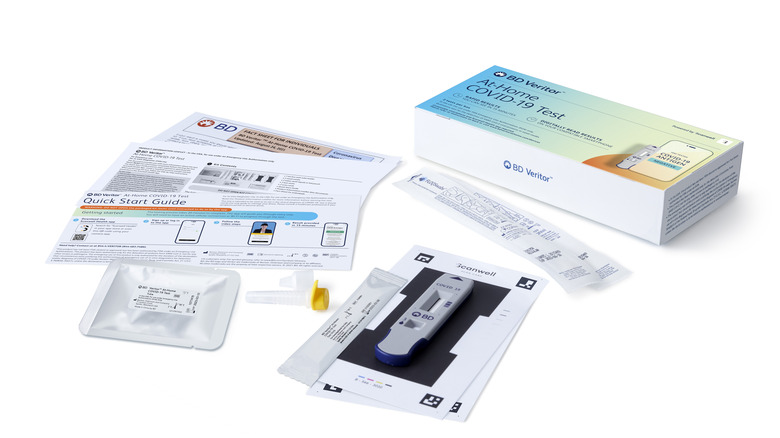The Most Reliable COVID Tests Available According To Dr. Jeff Andrews - Exclusive
Say you start to feel sick — tired, rundown, body aches, scratchy throat — so you take a COVID test, and it's negative. Are you in the clear? Unfortunately, no. "No test for COVID-19 is 100% accurate," says expert Dr. Jeff Andrews of BD Integrated Diagnostics Solutions. He recommends that if you have doubts or concerns about the results of your at-home test, you should contact your doctor for a follow-up.
The accuracy of COVID tests has been a topic of hot debate. While it is important to get tested for COVID if you are experiencing symptoms, the truth is, a COVID-19 diagnostic test could give you a false negative result, which means it is possible to test negative for COVID but still have it. It is also feasible to get a false positive on a COVID-19 rapid antigen test if you don't follow the directions correctly.
The chances of an inaccurate test result depend on the type and sensitivity of the COVID-19 diagnostic test you use (via Mayo Clinic). We sat down with Dr. Andrews for an exclusive interview to discuss the reliability of COVID tests and which ones are more accurate than others.
COVID test differences
There are two main types of rapid at-home COVID tests on the market: Rapid Molecular At-Home Tests and Rapid Antigen At-Home Tests.
A molecular test can detect the genetic material of the virus using a lab method called reverse transcription-polymerase chain reaction (which is why these are also commonly called an RT-PCR test for short). An antigen test looks for certain proteins in the virus (via Mayo Clinic).
"Rapid-molecular at-home tests tend to be slightly more sensitive but cost more and take a longer time to process. Rapid antigen at-home tests are slightly less sensitive than rapid molecular at-home tests but tend to be more affordable and have slightly faster result processing times," says Dr. Jeff Andrews.
A more sensitive test tends to mean a more accurate one, though it's still important to follow up with your doctor if you have any concerns. It is also important to make sure that the at-home test you are using has not expired — so check the expiration date on the outside of the box, especially if you have had tests stockpiled in your junk drawer for a while.
To learn more about BD, please visit https://www.bd.com/en-us. You can follow BD on LinkedIn, Twitter, and Instagram.

